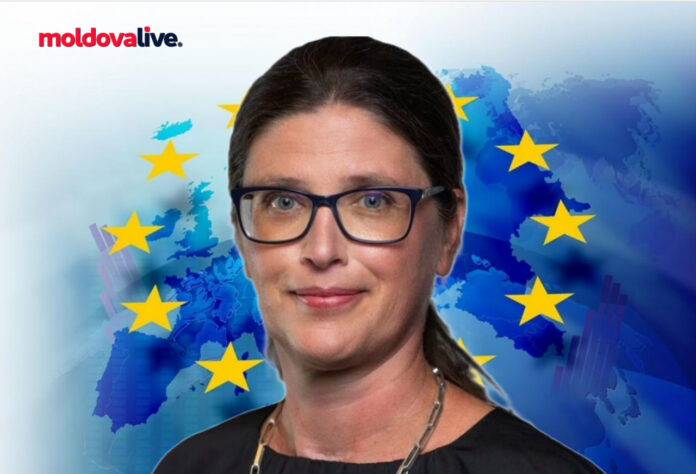Why did Sweden abandon its neutrality status and join NATO? What risks does the rise of a pro-Russian president entail, and how could Moldova maintain its neutrality by relying on its strengths? Sweden’s Ambassador Katarina Fried discussed these topics in an interview with IPN.
Katarina Fried has served as Sweden’s ambassador to Chisinau since September 2021. Sweden is one of Moldova’s key partners, and the two countries have significantly strengthened their bilateral relations over the past two years. In this context, Ambassador Fried reflected on Moldova’s evolution during her time in office.
Fried described her experience in Moldova as remarkable, especially given the challenges of the COVID-19 pandemic and the Russian aggression against Ukraine. These events have triggered a refugee crisis and created energy and economic challenges. Despite these hurdles, she praised Moldova for overcoming difficulties and achieving exceptional results in its European integration process. The country has gained candidate status for EU membership and has become independent of Russian gas, accomplishments that, while seemingly petite, hold great significance.
Fried referred to Sweden’s experience when it joined the EU, sharing that the referendum resulted in only 52% in favor of accession. At that time, many considered this narrow margin inadequate. However, Sweden has since become a great EU member. She emphasized the importance of respecting democratic processes, even when results are close, and stressed the need to move forward with the majority’s decision.
Regarding the public perception of the EU in Sweden, Fried noted debates surrounding issues such as loss of sovereignty and identity when Sweden joined. However, these fears proved unfounded, and today, Sweden benefits significantly from EU membership, enjoying security, incredible economic development, and opportunities for work and study across Europe.
Fried expressed optimism that if Moldova continues on its European path, it too will experience similar benefits, even for those who may fear the EU.
On Sweden and Moldova’s recent defense cooperation agreement, Fried addressed the usual narrative that NATO poses a threat to Moldova. She highlighted that NATO serves as a defensive alliance, not one of aggression. The real aggressor in the region is Russia, which has invaded Ukraine and seeks to impose its influence through violence and threats. In contrast, the EU promotes cooperation and peace.
FOR THE MOST IMPORTANT NEWS, FOLLOW US ON TWITTER!
Fried discussed the challenges of misinformation in Moldova, stating that media literacy and education are vital for helping people become discerning information consumers. She pointed out that Sweden enjoys a high level of trust in its authorities, which aids in disseminating verified information.
Reflecting on Sweden’s shift from a policy of neutrality to joining NATO, Fried explained that neutrality does not mean silence or inaction in response to violations of international law. She suggested that Moldova could maintain a neutral stance, given that both NATO and non-NATO EU member states can coexist harmoniously.
Fried urged Moldova to focus on implementing the European Commission’s recommendations, particularly regarding reforms in the justice system, which are crucial for advancing EU integration. She highlighted the need for Moldova to adopt EU norms in practice, impacting various sectors, including the environment and education.
Fried warned that if a pro-Russian president were to come to power in Moldova, it could hinder progress toward European integration and complicate relations with Sweden and the EU. However, she affirmed that the Moldovan people’s choices would determine their future.
In a message to Moldovan citizens ahead of the presidential election, Fried emphasized the importance of participating in democracy and making their voices heard, reminding them that every vote counts in shaping the country’s direction.


